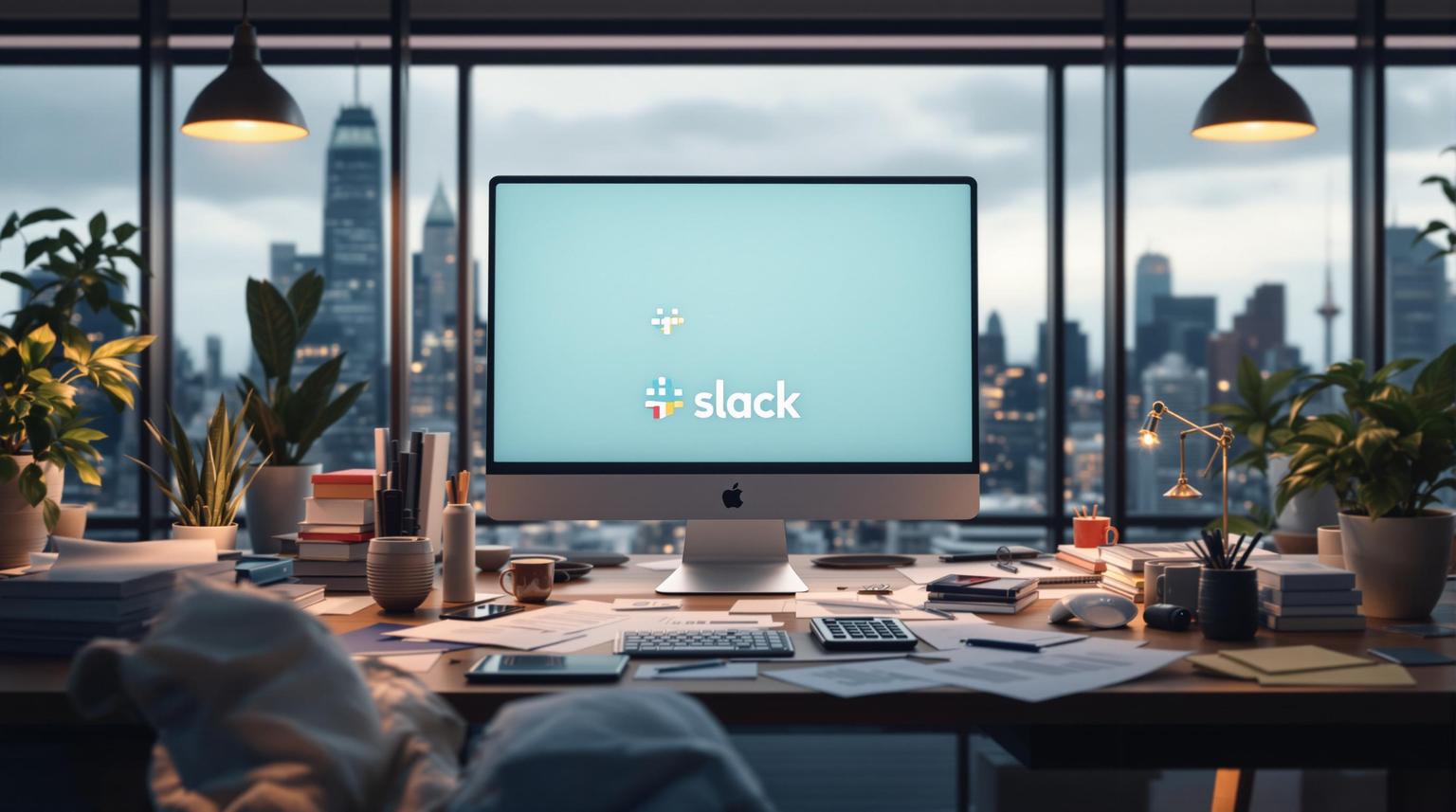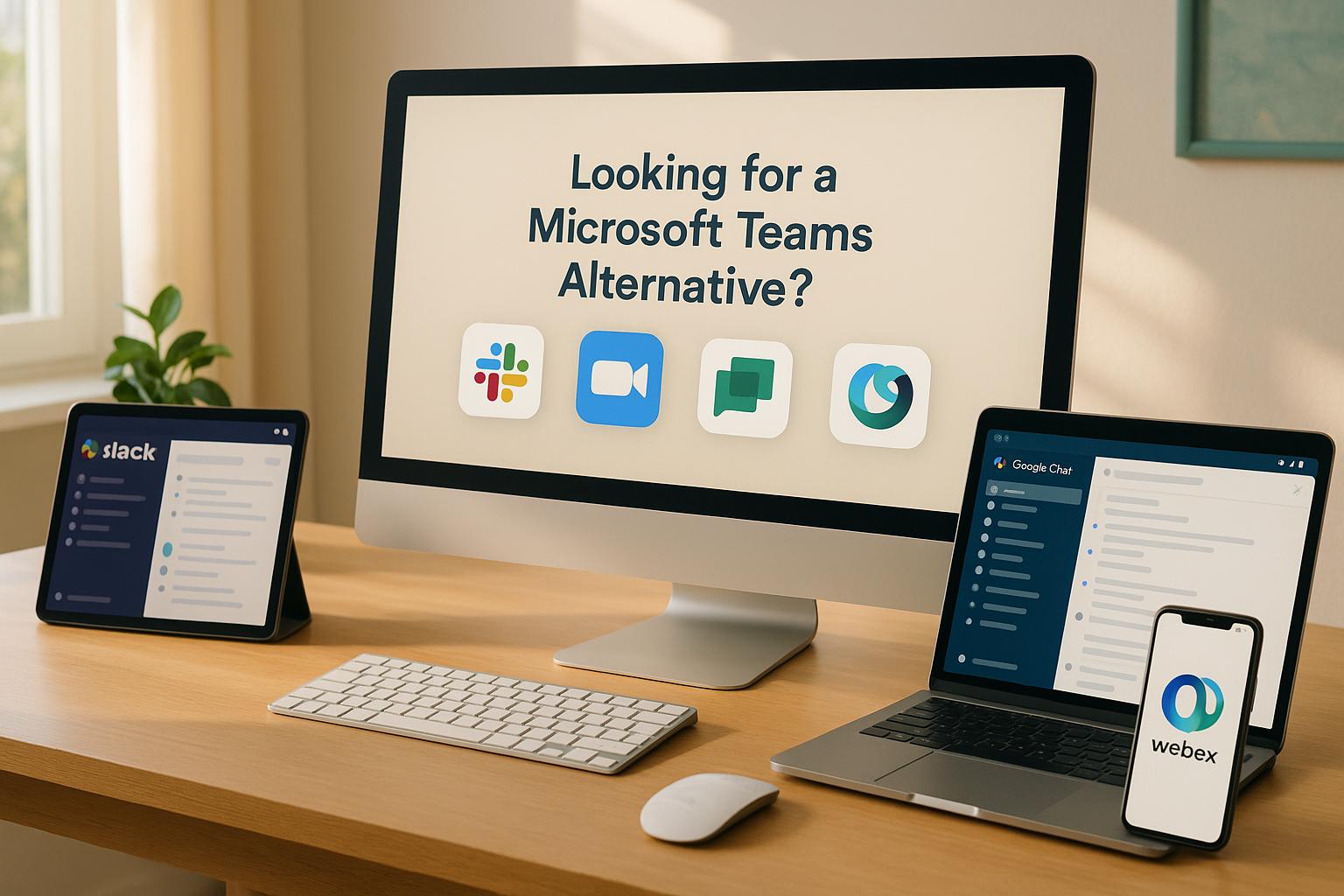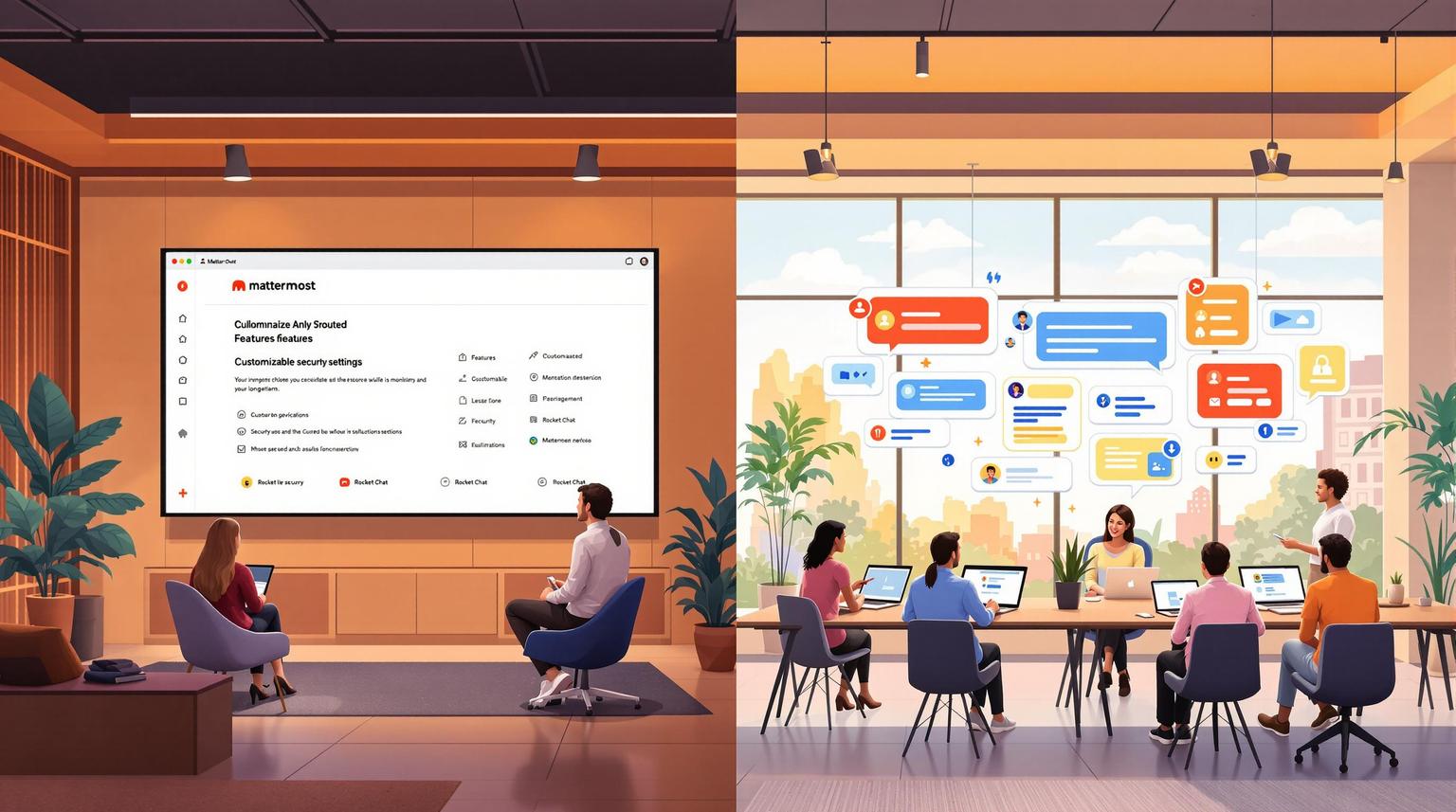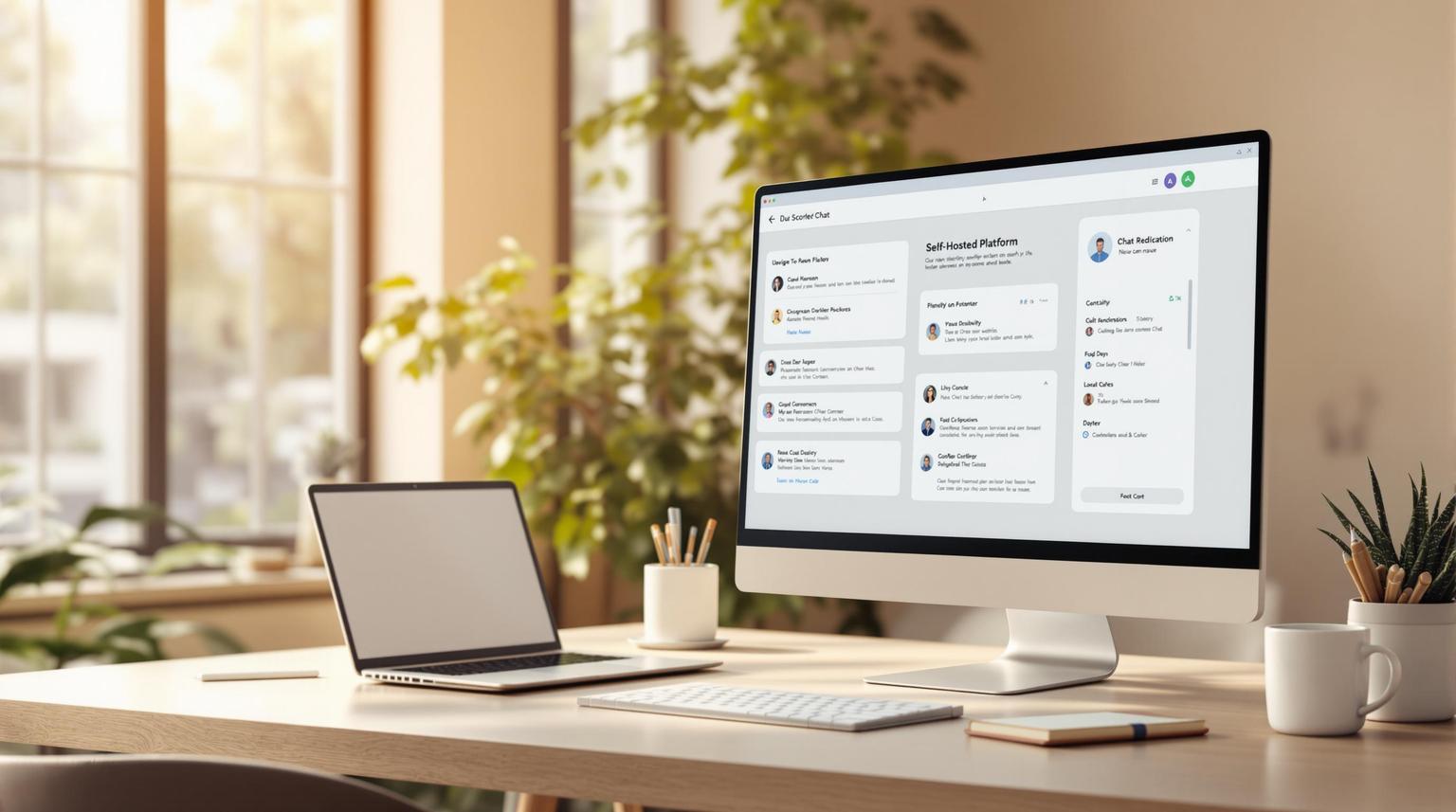Slack is no longer the go-to for workplace communication. Why? It struggles with high costs, scalability issues, notification overload, and security concerns. Here's what you need to know:
- Pricing: Slack's paid plans are expensive ($7.25–$12.50/user/month) compared to competitors like Microsoft Teams ($4/user/month) and Chanty ($3/user/month). Free plans are highly limited.
- Scalability: Slack often overwhelms users in large organizations with too many notifications and chaotic channel structures.
- Security: Slack lacks end-to-end encryption and retains data indefinitely unless settings are manually changed, raising privacy concerns.
- Alternatives: Platforms like Microsoft Teams, Rocket.Chat, and Mattermost solve these problems with lower costs, better scalability, advanced security, and customization options.
Quick Comparison
| Feature | Slack | Microsoft Teams | Rocket.Chat | Mattermost |
|---|---|---|---|---|
| Pricing | $7.25–$12.50/user/month | $4–$12.50/user/month | Free–Custom | Free–Custom |
| Scalability | Limited | Large-scale support | Highly scalable | Highly scalable |
| Security | No end-to-end encryption | Built-in compliance | End-to-end encryption | End-to-end encryption |
| Customization | Limited | Limited | Open-source | Open-source |
| Hosting Options | Cloud-only | Cloud-only | Self-hosted available | Self-hosted available |
Slack's competitors offer better solutions for enterprises, government, and technical teams. Whether you need stronger security, cost savings, or scalability, there are better options available.
Slack Vs Rocket.chat: Which Is Better?
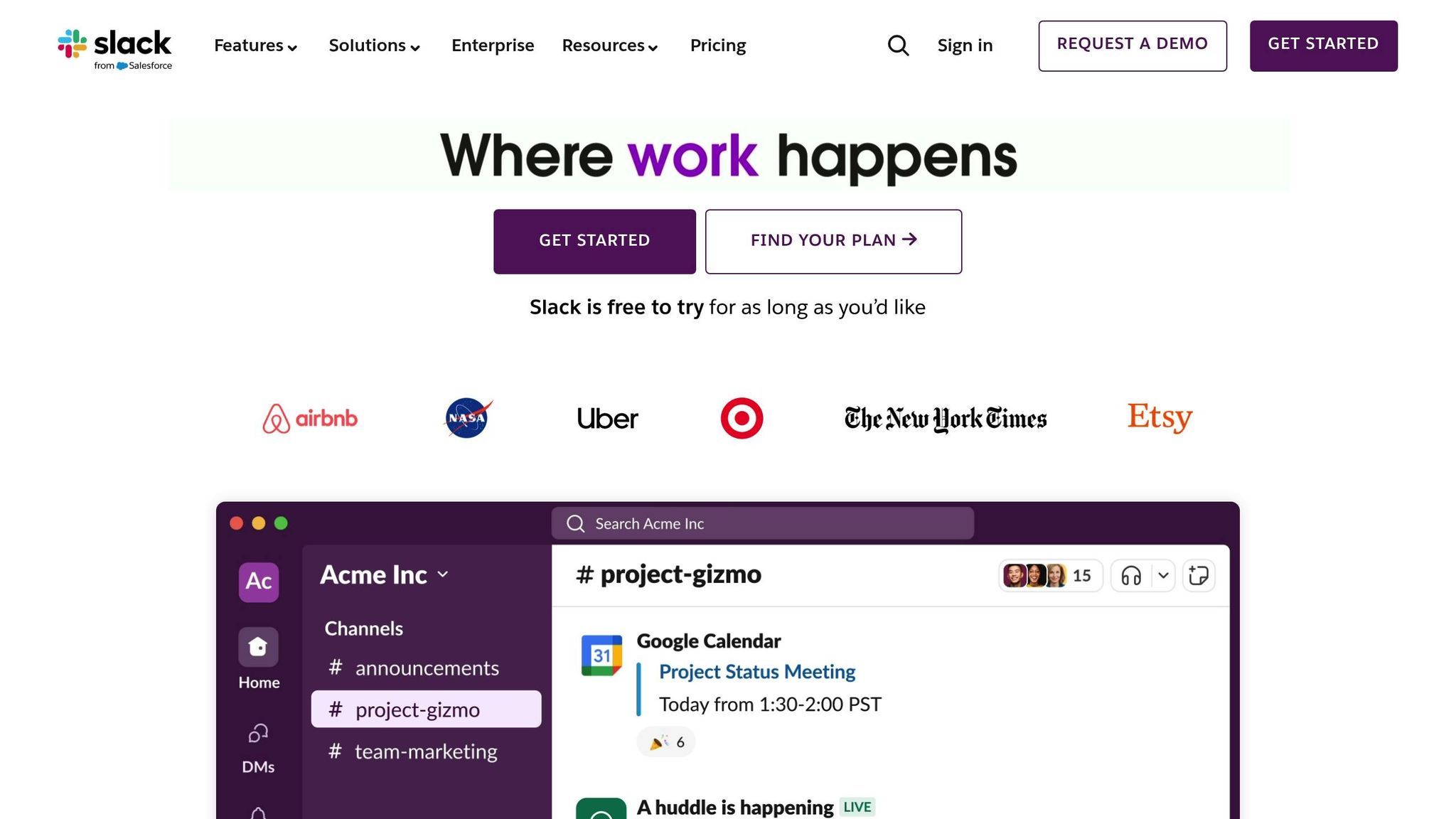
1. Slack: Core Limitations
Slack, with over 10 million daily users, faces four main challenges: pricing, scalability, notification overload, and security concerns.
Pricing Challenges
Slack's pricing can be a roadblock for smaller businesses. The free plan caps message history at 90 days and offers limited file storage. Paid options - $7.25/user/month for Pro and $12.50/user/month for Business+ - can quickly become expensive as teams grow. Here's how Slack compares to competitors:
| Plan Type | Slack | Competitors |
|---|---|---|
| Basic Business | $7.25/user/month | Chanty: $3/user/month |
| Advanced | $12.50/user/month | Microsoft Teams: $4/user/month |
| Entry Level | Free (limited) | Google Workspace: $6/user/month |
Scalability and Notification Overload
As teams grow, Slack's scalability issues become more evident. A study found that 78% of employees feel overwhelmed by notifications, even though Slack claims to save users 32 minutes per day compared to email. This constant flood of notifications disrupts workflows and makes managing large channel networks increasingly difficult.
In larger organizations, the number of channels often balloons to two or three times the number of employees. This creates a chaotic environment, reducing productivity instead of enhancing it.
Security Concerns
Slack encrypts data both in transit and at rest, but it doesn't offer end-to-end encryption. Additionally, paid plans allow employers to access all communications. By default, Slack retains all data indefinitely unless administrators adjust settings - an approach criticized by privacy advocates like the Electronic Frontier Foundation.
These limitations, especially in settings with large teams or complex workflows, can make Slack less effective as communication needs grow.
2. Microsoft Teams: Key Features
Microsoft Teams has become a strong competitor to Slack, offering lower pricing and a range of enterprise-focused features. With a staggering 270 million daily active users, Teams has positioned itself as a go-to platform for collaboration. Here's a closer look at what makes it stand out.
Affordable Pricing Options
For users already subscribed to Microsoft 365, Teams provides an affordable solution. Here's a breakdown of the available plans:
| Plan Type | Microsoft Teams Plan | Features Included |
|---|---|---|
| Essentials | $4.00 per user/month | 10GB storage per user |
| Business Basic | $6.00 per user/month | 1TB storage per user + Office Web Apps |
| Business Standard | $12.50 per user/month | Full Office Suite and advanced collaboration tools |
In comparison, Slack's Pro plan starts at $7.25 per user/month (billed annually), but Teams' Business Basic plan offers more features at $6.00 per user/month, including access to core Microsoft services.
Scalability for Large Teams
Microsoft Teams is built to handle large-scale collaboration needs:
- Accommodates up to 1,000 interactive participants, with an additional 10,000 view-only attendees.
- Offers sub-channels for organizing conversations and data.
- Provides 1TB of storage per user on paid plans.
These features make Teams a practical choice for organizations managing large groups or complex projects.
Seamless Integration with Microsoft 365
One of Teams' strongest advantages is its deep integration with Microsoft 365. Here's how it compares to Slack:
| Feature | Microsoft Teams | Slack's Limitation |
|---|---|---|
| Document Collaboration | Real-time in-app editing | Requires external apps |
| Video Conferencing | Built-in, supports 250+ participants (paid plans) | Limited to 15 participants |
| Calendar Management | Fully integrated with Microsoft 365 | Relies on third-party apps |
| File Storage | Integrated with OneDrive and SharePoint | Depends on external storage services |
This tight integration streamlines workflows and eliminates the need for additional tools.
Strong Security and Compliance
Microsoft Teams offers robust security features, built on Microsoft's compliance framework. Key benefits include:
- Advanced administrative controls to manage data governance.
- Integration with Microsoft's security ecosystem, ensuring high standards for data protection and compliance.
These features make Teams a reliable choice for organizations that prioritize secure communication and regulatory compliance.
sbb-itb-ae976f1
3. Mattermost: Platform Overview
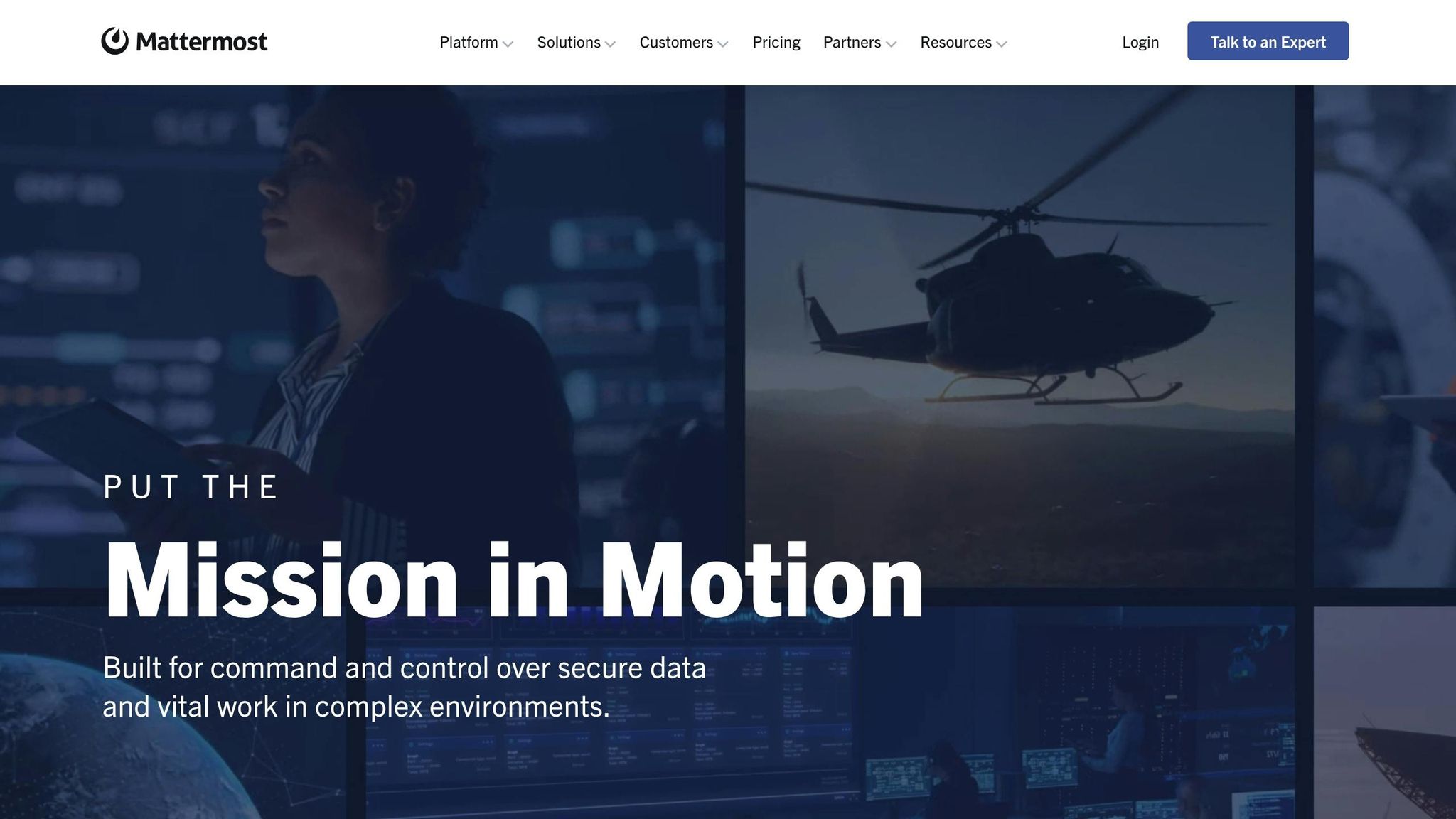
Mattermost stands out as a strong alternative to Slack by combining cost savings with complete control over communication infrastructure.
Pricing That Fits Any Organization
Mattermost offers flexible plans tailored to organizations of different sizes, making it a more affordable option compared to Slack:
| Plan Type | Price (per user/month) | Key Features |
|---|---|---|
| Free (Self-hosted) | $0 | Open-source edition, supports up to 50 users |
| Professional | $10.00 | Available as self-hosted or cloud deployment |
| Enterprise | Custom pricing | Includes advanced security and compliance features |
Organizations that switch from Slack Enterprise Grid to Mattermost have reported saving over 60% on costs.
Built for Scalability
Mattermost is designed to handle large-scale deployments with ease:
- Tested to support up to 70,000 concurrent users, addressing scalability issues that Slack sometimes faces.
- Offers cluster-based, highly available deployments.
- Works seamlessly with PostgreSQL and Amazon RDS databases.
- Supports storage options like Amazon S3 or local filestores.
Open-Source Benefits
Mattermost's open-source foundation gives organizations unmatched flexibility and control:
- Customizable Design: Teams can tweak everything from the interface to branding without altering the core code. For example, VCLB Ghent customized Mattermost to create a COVID tracking tool.
- Data Ownership: Unlike Slack's cloud-only setup, Mattermost's self-hosted option allows organizations to fully control their data. This is especially useful for businesses with strict compliance or data sovereignty needs.
Security You Can Count On
Mattermost takes security seriously, positioning itself as "the world's most secure platform for developer collaboration". It meets a range of compliance standards, including:
- HIPAA
- FINRA
- SOC 2 Type I
- GDPR
- CCPA
Seamless Integrations
With organizations using an average of 250 apps, Mattermost's integration framework helps reduce the need for constant app-switching. Its Plugin framework lets teams customize the platform without causing disruptions, ensuring stability while adding new features.
"Mattermost is designed to eliminate siloed communications infrastructure and enable every employee to rely exclusively on Mattermost for all of their collaboration needs. Our goal is to support everyone at an organization - creating the experience of one big team instead of several smaller ones."
With these capabilities, Mattermost is a compelling option for enterprises seeking an alternative to Slack. Stay tuned as we explore other choices.
4. Rocket.Chat: Main Features
Rocket.Chat stands out as a strong alternative to Slack, offering greater control and security. With a user base exceeding 12 million worldwide, it addresses many of Slack's shortcomings with a range of advanced features.
Enterprise-Grade Security Controls
Rocket.Chat prioritizes security with a comprehensive framework that includes:
| Security Feature | Purpose |
|---|---|
| End-to-End Encryption | Keeps private conversations secure |
| Granular Access Control | Allows tailored roles and permissions for users |
| Self-Hosted AI Support | Enables AI use while ensuring data stays private |
| Air-Gapped Deployment | Provides full network isolation for extra protection |
These features are designed to meet the needs of organizations requiring high levels of security.
Flexible Deployment Options
Unlike Slack, which is cloud-only, Rocket.Chat offers a variety of deployment methods:
- Self-Hosted: Full control over your infrastructure.
- Secure Cloud: A managed service with added security measures.
- Air-Gapped: Isolated setups for operations that demand maximum confidentiality.
Cross-Platform Communication
Rocket.Chat bridges communication gaps by offering:
- Integration with Matrix-protocol platforms.
- Connections to Microsoft Teams.
- Real-time chat, audio, and video functionality.
- Advanced file-sharing capabilities.
By consolidating multiple communication tools into one platform, Rocket.Chat eliminates the fragmentation issues often associated with Slack.
Compliance and Certification
Rocket.Chat also ensures compliance with stringent regulations, making it suitable for industries with strict data requirements. It adheres to:
- GDPR
- CCPA
- LGPD
- HIPAA
- ISO 27001
- SOC 2
A practical example of its capabilities is the Public Defender's Office of the State of São Paulo (DPESP). They have used Rocket.Chat to manage over 1 million citizen cases. Erik Arnesen, Head of IT at DPESP, shares:
"We looked for a solution that would allow us to exchange messages with citizens in a secure and familiar manner. We have already supported over 1M citizen cases using Rocket.Chat. Today, the solution is absolutely critical to our day-to-day operations."
Ideal for Government and Defense
Rocket.Chat's secure framework also makes it a top choice for government and defense sectors. Mobility 4 Public Safety CEO Niki Papazoglakis explains:
"We needed a highly secure messaging platform to communicate across US government agencies. Rocket.Chat met all requirements and was the perfect choice to provide a secure platform across desktop and mobile environments."
Direct Comparison
This section dives into a side-by-side comparison of key features, highlighting where platforms like Slack, Microsoft Teams, Rocket.Chat, and Mattermost stack up against each other. Slack's challenges with pricing, scalability, and security provide a backdrop for this evaluation.
Security and Compliance
| Feature | Slack | Microsoft Teams | Rocket.Chat | Mattermost |
|---|---|---|---|---|
| HIPAA Compliance | Enterprise Grid only | All paid plans | Yes | Yes |
| End-to-End Encryption | Limited | Built-in | Built-in | Built-in |
| Self-Hosting Option | No | No | Yes | Yes |
| Advanced Threat Protection | Via integrations | Built-in | Built-in | Built-in |
Microsoft Teams stands out with robust built-in security features like real-time virus scanning and mandatory two-factor authentication. These capabilities make it appealing to industries with strict regulations, such as healthcare and finance.
Customization and Control
| Aspect | Slack | Competitors' Advantages |
|---|---|---|
| Source Code Access | Closed source | Rocket.Chat & Mattermost: Open source |
| Data Control | Limited | Full control with self-hosted options |
| Integration Options | Preset marketplace | Custom integration capabilities |
| User Capacity | Unlimited | Teams: 25,000 users per organization |
While Slack offers a polished interface and preset integrations, its closed-source nature limits flexibility. Platforms like Rocket.Chat and Mattermost provide open-source frameworks, granting organizations more control over data and integrations.
Platform Architecture
Each platform has a unique approach to organizing communication:
| Feature | Slack | Microsoft Teams | Impact |
|---|---|---|---|
| Chat Organization | Topic-based channels | Team structure groups | Different collaboration workflows |
| Command Interface | Advanced slash commands | Basic commands | Slack boosts productivity here |
| Notification System | Highly customizable | Standard options | Slack offers better user control |
Slack shines with its intuitive slash commands and customizable notifications. However, its closed architecture limits the deeper customizations often required by security-focused organizations.
Enterprise Considerations
When it comes to large-scale deployments, here’s how the platforms compare:
1. Security Infrastructure
Microsoft Teams includes comprehensive security features in its standard packages. In contrast, Slack requires its most expensive Enterprise Grid plan to offer similar levels of protection.
2. Compliance Requirements
Teams is ready to meet compliance standards like HIPAA right out of the box. Slack, however, only achieves comparable compliance at the Enterprise Grid level.
3. Customization Depth
Rocket.Chat and Mattermost stand out with extensive customization options, allowing organizations to tailor the platforms to their needs. Slack, by comparison, offers limited flexibility.
Although Slack set the standard for team chat, its competitors have addressed many of its shortcomings with enterprise-grade solutions. Organizations need to consider their specific needs for security, compliance, and customization when choosing the right platform.
Recommendations
Here’s a breakdown of platform suggestions tailored to different organizational needs and priorities:
Security-First Organizations
If your organization prioritizes strong security measures, Microsoft Teams or self-hosted platforms like Rocket.Chat are solid options. Rocket.Chat's on-premise setup not only strengthens security but also ensures smooth operations.
Budget Considerations
For teams focused on cost, here’s a quick comparison of options based on team size:
| Organization Size | Recommended Platform | Monthly Cost per User |
|---|---|---|
| Small Teams (<50) | Slack | $8.75 |
| Mid-size (50–500) | Microsoft Teams | $6.00 |
| Enterprise (500+) | Teams or Slack Enterprise | Custom pricing |
Compliance Requirements
When it comes to meeting compliance standards like HIPAA, Slack requires its Enterprise Grid plan. Meanwhile, Microsoft Teams, Rocket.Chat, and Mattermost offer compliant options through paid or self-hosted plans.
Integration-Heavy Workflows
For organizations needing extensive integrations, Slack offers over 2,400 apps, far surpassing Microsoft Teams, which supports around 250 integrations. However, Teams has the edge when paired with Microsoft 365, making it a strong choice for businesses already using Microsoft's ecosystem.
Communication Style Match
Your team’s communication habits and security requirements play a big role in choosing the right platform. As Justin Hewitt, Senior Director of DevOps Platform Services, explains:
"We have a much shorter time to detection. When an issue comes up we can reach a solution much faster, because all of the external vendors and internal developers who are on those Rocket.Chat channels will already have seen it, and acted on it together."
DevOps and Technical Teams
For technical teams, platforms that enable quick issue detection and resolution are key. Tools like Rocket.Chat can help streamline collaboration, especially when managing Slack's frequent notification challenges in complex environments.
AI Capabilities
For AI-powered features, Microsoft Teams Copilot delivers a robust experience at $30 per user/month, while Slack AI offers more basic functionality at $10 per user/month.
When deciding on a platform, consider your team’s security needs, budget, compliance requirements, and integration preferences. Evaluating your current tools, communication workflows, and future growth plans will help you make the best choice.
